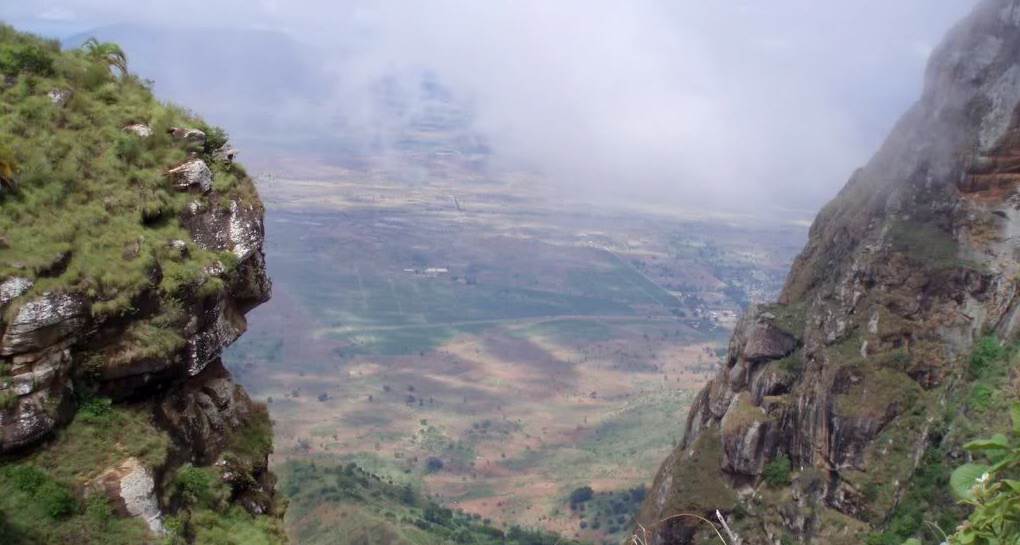A British lawyer has been interviewed by criminal investigation officers in Kenya over missing funds meant for the construction of two major dams in the country.
Guy Spencer Elms, a controversial lawyer based in Kenya’s capital Nairobi, was among various company directors and top government officials who recently appeared before the Director of Criminal Investigations for grilling in connection with missing Sh21 billion (approximately $210 million) that investigators believe has been wired to firms in Europe.
In April 2017, the Kenyan government entered into a contract with an Italian company CMC di Ravenna to build two dams in Kenya’s Rift Valley region at the cost of Sh65 billion. The Kenyan Treasury paid Sh21 billion to the Italian firm, but the company is yet to commence the work several months later.
While Kenya’s Director of Criminal Investigations (DCI) is still investigating how the controversial Spencer Elms was involved in the scandal, DCI boss George Kinoti disclosed that he was seeking the help of both the United Kingdom and Italy “because that is where our money was wired”.
DCI revealed that the investigations had grown complicated due to the widened scope of companies involved in the scandal, with the money trail reaching firms in both Italy and the United Kingdom.
In London, the DCI has contacted the National Crime Agency, mandated to investigate economic crime across regional and international borders.
“We are dealing with several companies with different directors. That is why we are going through this methodically and clinically. But the net is getting wide,” Kinoti said.
Responding to the DCI‘s request to interview him, Elms told DeSmog:
“A notice was sent out via social media by the CID asking that directors of 107 companies attend and provide statements concerning their involvement in any manner with the Italian company at the centre of the scandal. The Government records still showed that I was a director of one of the companies that had supplied the Italian company goods to the value of a mere $15,000.”
“I had ceased to be a director 17 years earlier. Confirming documentation was supplied to the CID’s satisfaction. I clearly had nothing to do with the Dam Scandal.”
Elms emphasies that he has never been involved in criminal proceeding regarding the investigation in CMC Ravenna. A full response to Elms’ summons from his lawyers can be found at the bottom of this article.
Ambitious Project
A man not new to controversies, Spencer Elms was charged by a Kenyan court in September 2017 for forging a will in connection to prime real estate in Karen, one of the Nairobi city suburbs.
He was also mentioned in the Anglo Leasing scandal, where phantom firms were awarded £21 million to supply the Kenyan government with a system to print new high-technology passports, naval ships and forensic laboratories.
So far, the directors and senior managers of 107 firms that were paid money by the dam contractor to offer various services and to supply goods have recorded statements with investigators.
Spencer Elms was summoned to the DCI together with other eight people associated to his company, Tile & Carpet Centre, a building and interior product company based in Nairobi. Spencer Elms could not be reached for comment for this story.
Kenya’s leading newspaper, Daily Nation, reported that despite Sh21 billion having been paid to the Italian firm to build Arror and Kimwarer dams, there remains only thickets and a seasonal stream at the site.
The ambitious projects aim to provide water for irrigation for over 50,000 people living in the vast region, and 80 megawatts of electricity to the national grid. But the plans have been subject to significant local opposition, with residents concerned they are not getting fair compensation packages for their communities’ displacement.
Kenya’s Deputy President William Ruto defended the project, claiming that people against the dams were trying to taint the government’s image.
“We will go out of our way to ensure these dams are constructed … so we can change the fortunes of Kenyans in arid and semi-arid areas. It is not a favour but a development right they deserve,” Ruto said.
CMC di Ravenna is one of the biggest construction firms in Europe but has hit financial turbulence in recent times and was declared insolvent by an Italian court last December, affecting its ability to complete large infrastructure projects.
Banks that loaned the country Sh65 billion for the two dams have written to the Treasury seeking a settlement of their demand notes. That means the Kenyan government could start repaying loans for a project that exists only on paper.
In a statement, CMC di Ravenna said it “continues to be fully committed to completing the dam project ahead of or within the contracted timeframe.”
Some of the text in this article was amended on 09/09/2019 after an official complaint was lodged by Guy Spencer Elms.
Main image: Elgeyo escarpment in the Great Rift Valley. Credit: Pngobiro/Wikimedia Commons CC BY–SA 3.0
Subscribe to our newsletter
Stay up to date with DeSmog news and alerts






